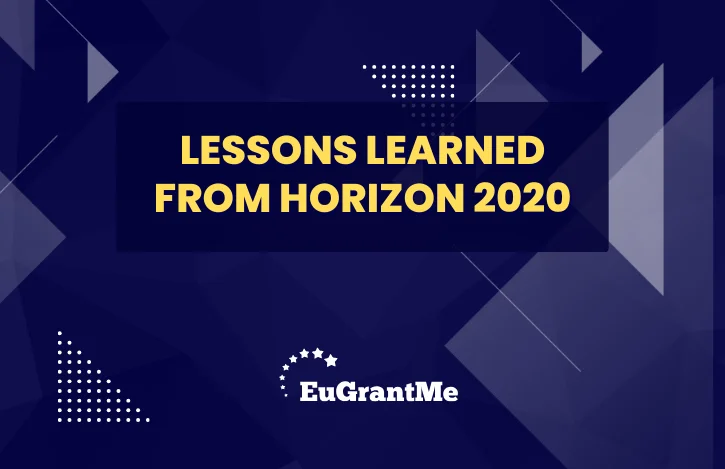As the Horizon 2020 funding programme draws to a close, it offers a wealth of lessons and experiences that can inform and improve future research and innovation proposals. Horizon 2020, the European Union’s flagship research and innovation programme, has been instrumental in funding projects across various sectors, from health and environment to technology and social sciences. Over the years, countless researchers, innovators, and project managers have embarked on ambitious ventures, driven by the shared goal of advancing knowledge, driving innovation, and addressing societal challenges.
However, with the conclusion of Horizon 2020 comes an opportunity for reflection and introspection. By examining the successes and challenges encountered during the implementation of Horizon 2020 projects, stakeholders can glean valuable insights to enhance the quality and effectiveness of their proposals for upcoming funding programmes, such as Horizon Europe. This article aims to delve into the key lessons learned from Horizon 2020, offering practical guidance and recommendations for researchers and innovators looking to navigate the complex landscape of EU funding and maximize their chances of success.
Lessons Learned from Horizon 2020
- Strategic Consortium Building
One of the key lessons learned from Horizon 2020 is the importance of strategic consortium building. Successful proposals often involved collaborations between diverse partners, including universities, research institutions, SMEs, and larger companies. These consortia brought together complementary expertise and resources, fostering innovation and ensuring the successful implementation of projects. Future proposals should prioritize the formation of well-balanced consortia with clearly defined roles and responsibilities for each partner, ensuring synergy and cohesion throughout the project lifecycle.
- Clear and Realistic Objectives
Another crucial lesson from Horizon 2020 is the significance of setting clear and realistic objectives from the outset. Projects that defined achievable goals and milestones were more likely to succeed in securing funding and delivering impactful outcomes. Proposals should articulate a compelling vision for the project while also demonstrating a clear understanding of the challenges and risks involved. By aligning objectives with the programme’s priorities and societal needs, applicants can enhance the relevance and competitiveness of their proposals.
- Effective Communication and Dissemination Strategies
Communication and dissemination activities play a vital role in maximizing the impact of Horizon 2020 projects. Lessons learned indicate that successful projects employed proactive communication strategies to engage stakeholders, disseminate project results, and promote knowledge sharing. Future proposals should incorporate robust communication and dissemination plans, outlining targeted activities to reach diverse audiences, including policymakers, industry stakeholders, and the general public. By effectively communicating project achievements and outcomes, researchers can amplify their impact and contribute to broader societal awareness and understanding.
Final Remarks: Applying Insights for Future Success
In conclusion, the lessons learned from Horizon 2020 projects provide valuable guidance for enhancing the quality and success of future funding proposals. By strategically building consortia, setting clear objectives, and implementing effective communication strategies, researchers and innovators can position their proposals for greater competitiveness and impact in Horizon Europe and other upcoming funding programmes. As the European Union continues to prioritize research and innovation as drivers of economic growth and societal progress, leveraging insights from past experiences will be instrumental in shaping the success of future projects.
Looking ahead, it is essential for stakeholders to embrace a culture of continuous learning and improvement, incorporating feedback and best practices into their proposal development processes. By fostering collaboration, innovation, and excellence, researchers and innovators can play a pivotal role in addressing global challenges, driving sustainable development, and shaping a brighter future for Europe and the world. As we embark on the next chapter of EU funding, let us draw upon the lessons of the past to chart a course towards a more innovative, resilient, and inclusive future.
At EuGrantMe, we are passionate about fostering innovation and empowering ambitious minds to flourish. Our mission revolves around providing top-notch grant writing services for the EIC Accelerator and Horizon grants in Europe, enabling our customers to unlock the full potential of their ground-breaking ideas.
Do you have a project to turn into reality?
Contact us!


